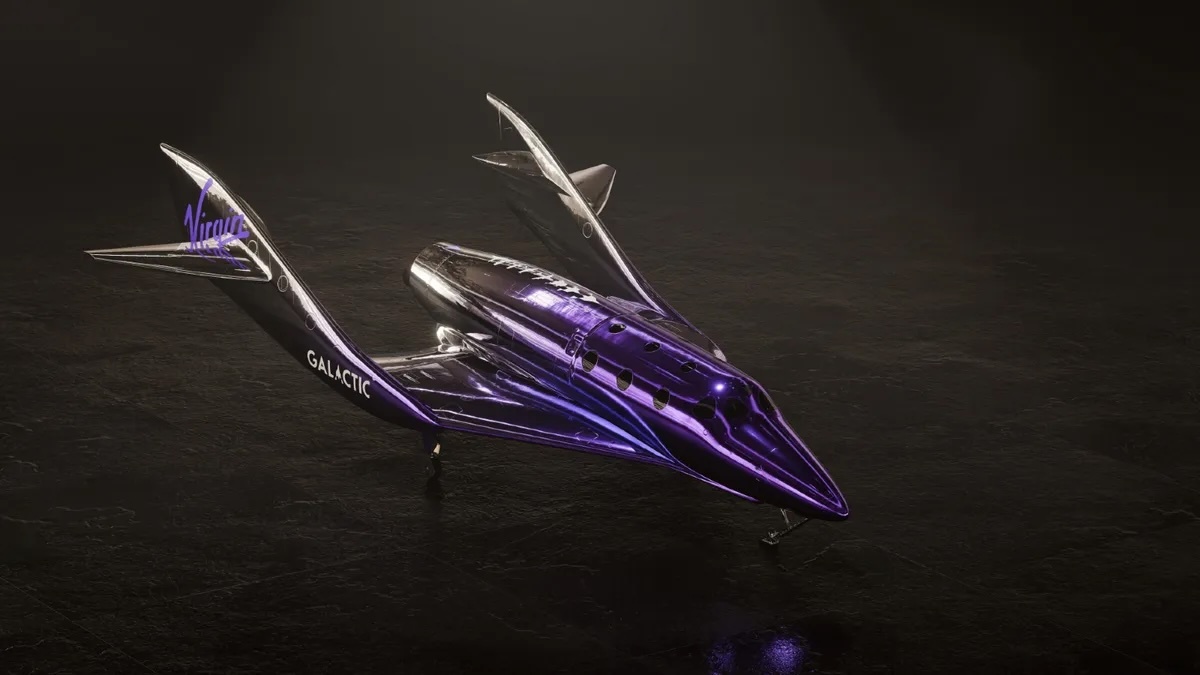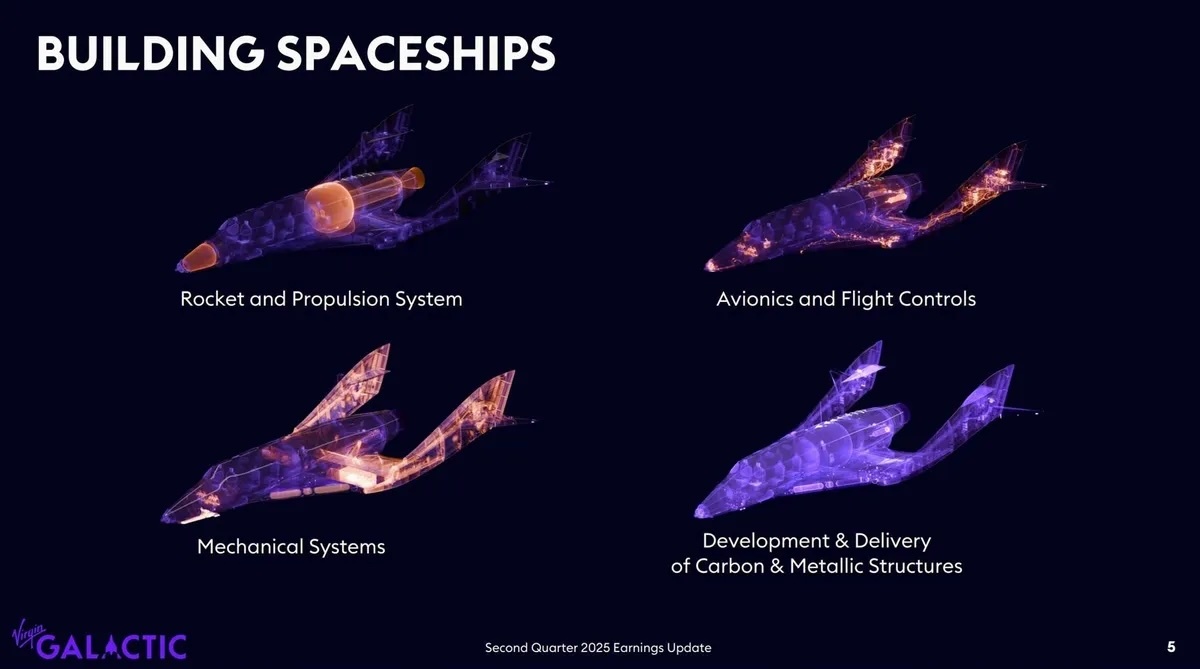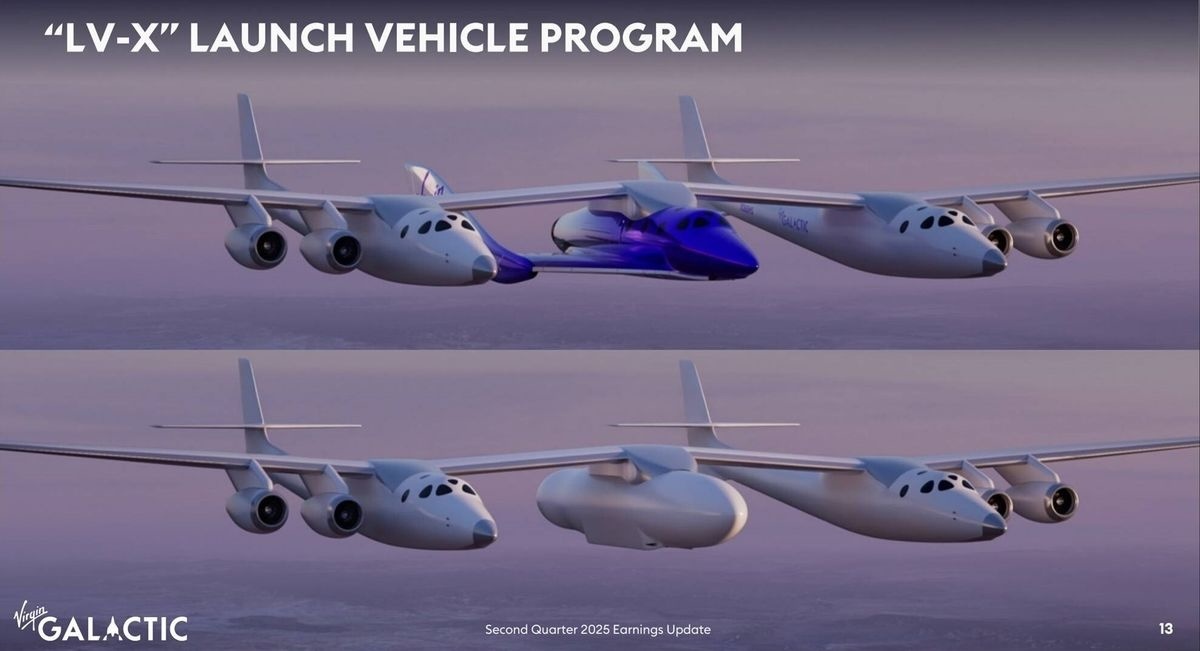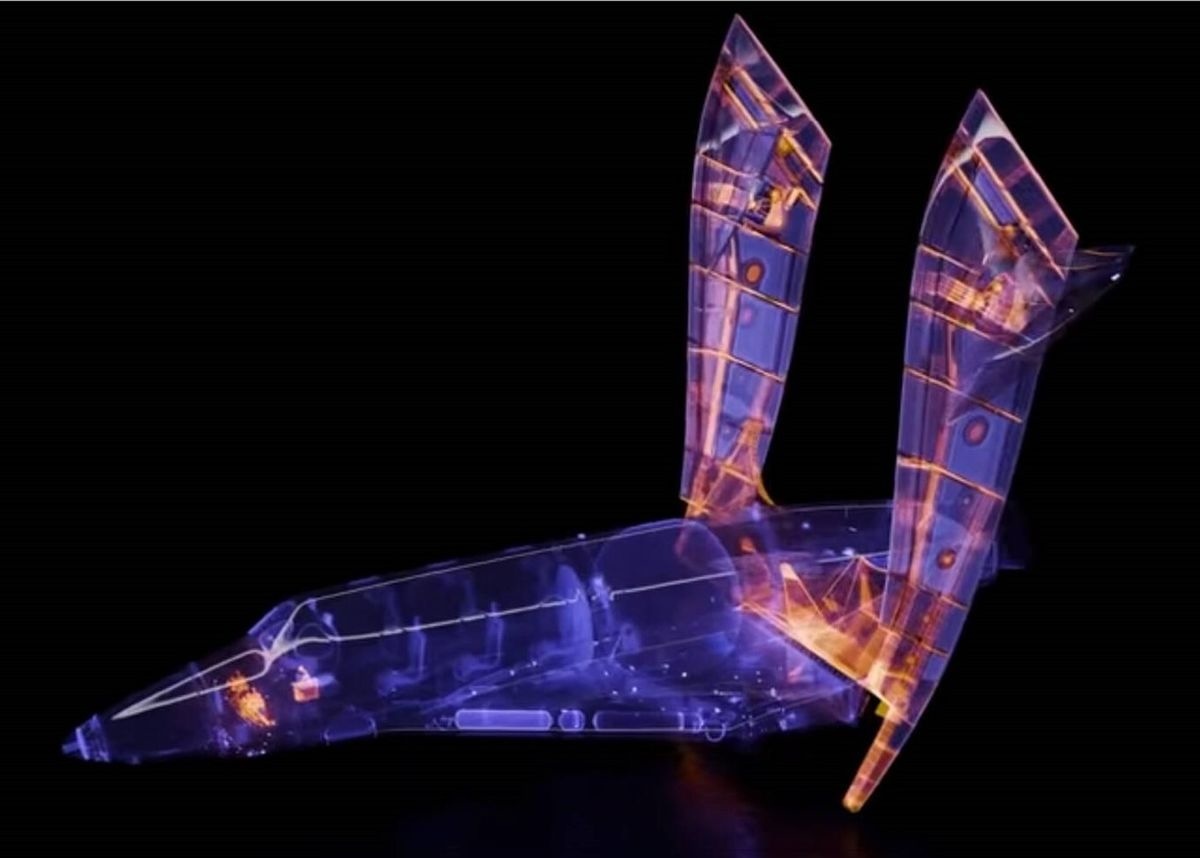14.08.2025
The company is also looking at using its mothership aircraft that releases spacecraft at high altitude as a carrier platform for other customers.

Rendering of Delta Class Spaceship design. (Image credit: Virgin Galactic)
Virgin Galactic is deep into development of its new Delta Class suborbital space planes, with both research and private astronaut flights expected to commence in the fall of 2026.
Virgin Galactic is also collaborating on a feasibility study with Lawrence Livermore National Laboratory to look at using its mothership aircraft to launch other spacecraft at high altitude as a carrier platform.
"Progress on our SpaceShips continues across all systems and structures," reports Michael Colglazier, CEO of Virgin Galactic. He underscores a strong financial balance sheet, "to execute our business model as we bring our SpaceShips into commercial service." Colglazier says commercial service remains planned for 2026, with both research and private astronaut flights expected in the fall next year.
Conference call
The construction of Virgin Galactic's new Delta Class space plane was reviewed during the company's second quarter 2025 business conference call on Aug. 6.
The company highlighted ongoing work on Delta Class systems and structures, such as wing assembly to be completed during the fourth quarter of this year, as well as the craft's novel "feather" assembly. The feathering system is utilized when the suborbital vehicle heads back to Earth, making it more stable during the reentry process. Construction of the Delta Class SpaceShip fuselage is expected to be completed late this year or early 2026.
Also noted in the business update was progress in a feasibility study to potentially develop a second spaceport in Italy.

Progress reported on developing the new Virgin Galactic Delta Class suborbital Spaceship. (Image credit: Virgin Galactic)
Flight frequency
Final assembly of the vehicles will take place at Virgin Galactic's Delta facility near Phoenix, Arizona. The Delta Class spaceships are being built to be capable of flying eight space missions per month, with twelve times the monthly payload or customer capacity of their original spaceship, VSS Unity.

Virgin Galactic and Lawrence Livermore National Laboratory are looking at the feasibility of using the airplane mothership as a carrier platform. (Image credit: Virgin Galactic)
The firm explains that their next-generation vehicles will bring humans to space at an unprecedented frequency with an industry-leading cost structure.

Delta Class Spaceship and its unique feathering system that is pilot-deployed during the craft's re-entry. (Image credit: Virgin Galactic)
Virgin Galactic's Mike Moses, president of Spaceline, oversees the commercial spaceflight program. A newly issued "Galactic 10" video spotlighted development milestones in moving the Delta Class SpaceShip program forward.
Quelle: SC
